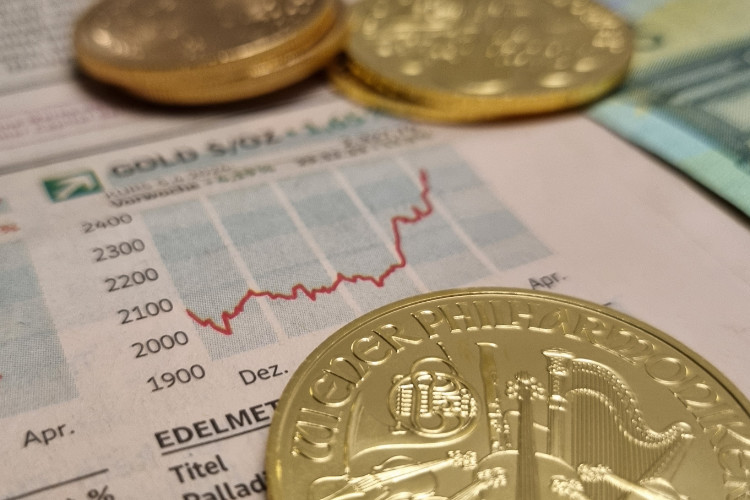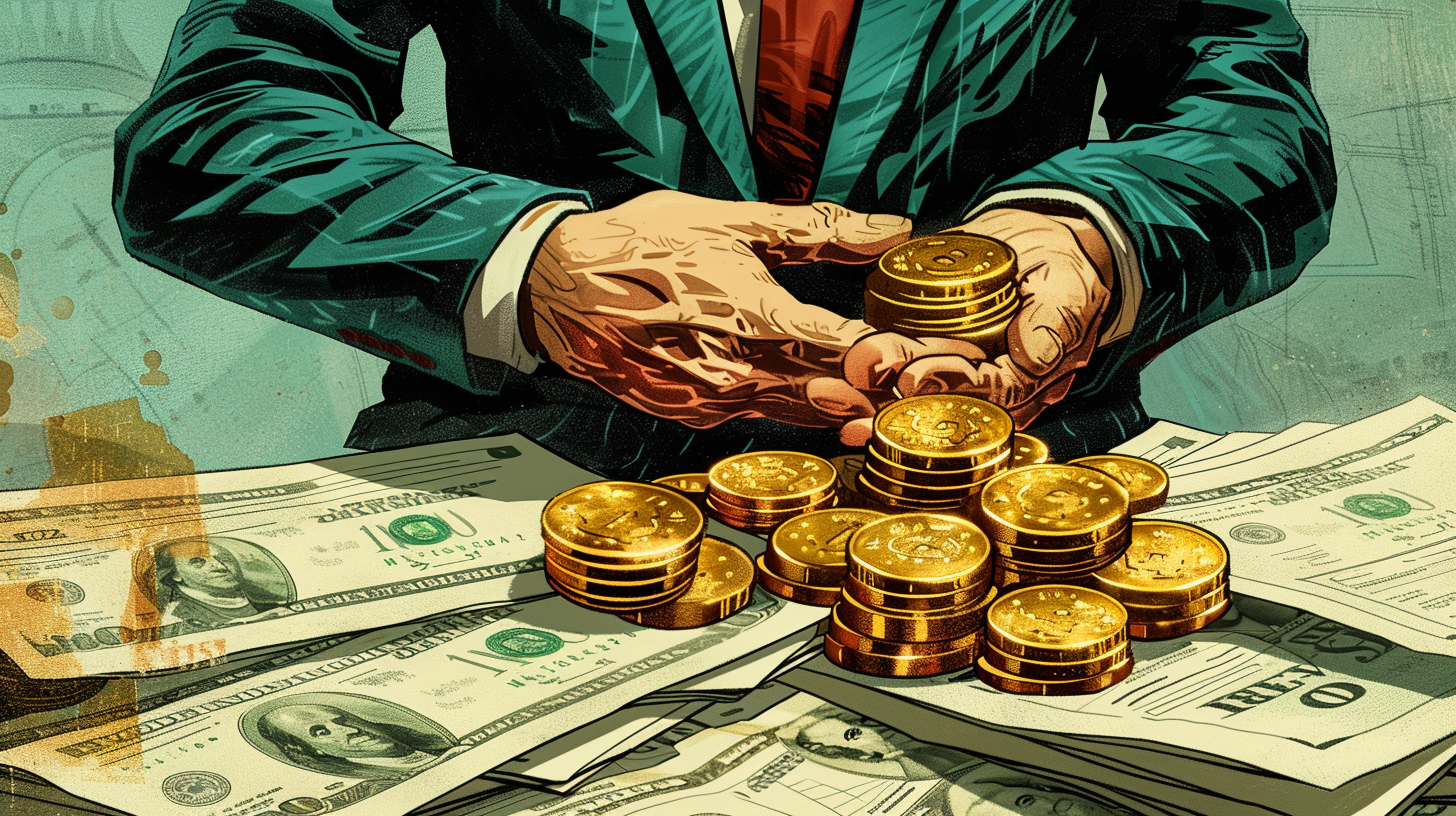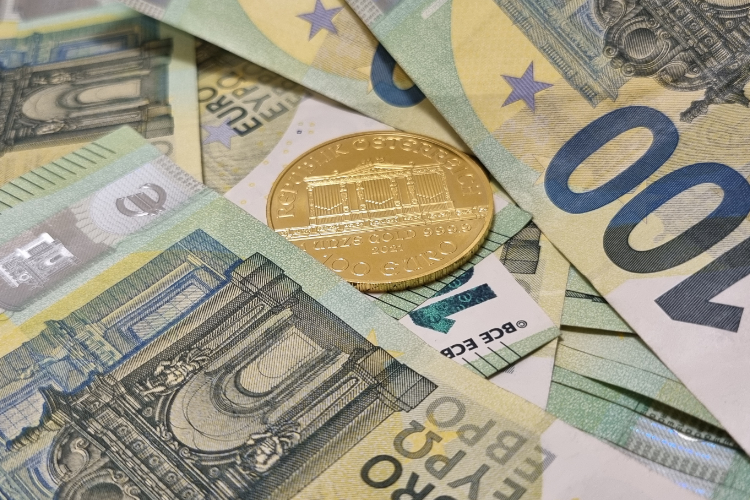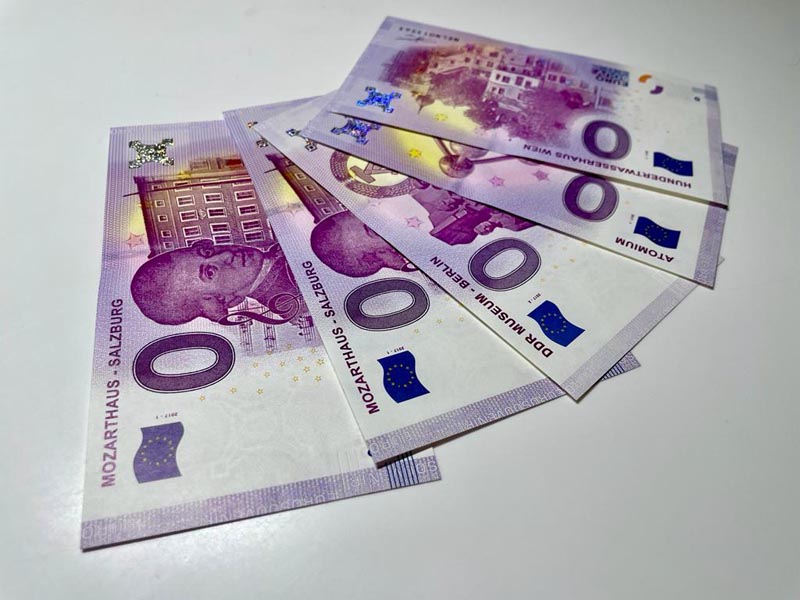
There are rumors around the world about the abolition of cash. Critics believe that this would be tantamount to expropriation. Is there really cause for concern? At least cash restrictions are already a reality in many EU countries.
Cashless and free - or monetary slavery in the surveillance state?
"Money is coined freedom" said already in the 19th century the famous Russian writer Fyodor Dostoyevsky about money.
Critics say that the authorities want to exercise "more control over the citizen" by banning cash. The goal of all governments is to maintain access to the people's money, but cash expresses independence and freedom, and that is a valuable commodity.
In a world of digital payments, on the other hand, every transaction is traceable for banks, financial companies and the state, digital financial assets are transparent for all to see, and last but not least, there is also - or even especially - in the digital world the danger that virtual money will simply be stolen.
Austria: Trend toward cashless payment accelerates
Austriais still one of the top cash nations. According to a study conducted by ING-Diba in 2019, only one in ten Austrians would be prepared to do without cash altogether. The former head of the National Bank, Ewald Nowotny, therefore spoke from the heart of many when he said: "Cash will continue to play a very decisive role in the economy. We are absolutely against any coercion in the question of what I use as a means of payment."
Nevertheless, the share of cashless payments has also risen steadily in Austria recently, partly due to the modern option of "convenient" contactless payment via NFC. The increasing share of online shopping, where cashless payments are rarely avoided, is also ensuring that the share of cashless transactions is rising.
Not least the Corona pandemic has led many citizens to forego cash when paying in stores and to pay by card instead. The WHO had at least recommended dispensing with cash and paying contactless during the COVID-19 crisis. In the United Kingdom, it is already apparent that this abandonment of cash is likely to be sustainable for many people.
Cash ban in the interest of governments & financial industry
A complete ban on cash in Europe would be astonishing - after all, euro banknotes are legal tender in the euro zone and are protected by the EU Treaty. Or would it?
There have long been restrictions on the use of cash in the EU and in Euro Europe. "In France and Portugal, for example, only 1,000 euros, in Spain a maximum of 2,500 euros, and in Italy or Belgium a maximum of 3,000 euros may change hands in cash - and thus without identity verification. Cash restrictions are therefore already a reality. And they are in the majority of EU countries. Most recently, in January 2021, the idea of introducing a cash limit of 10,000 euros for all member states came up again.
Also serving as cash restrictions are the rules on how much cash one is allowed to bring into a country when entering it. The pretext is easier registration of "conspicuous movements of money" in the fight against money laundering, but in reality it is also about capital controls.
In this campaign against "money laundering and terrorism," the 500 euro bill was of course also abolished in 2016. Initially, the banknotes in circulation were to retain their validity, but at some point they were to become invalid for payment transactions and could then only be exchanged at the national banks- probably against proof of origin. It remains to be seen whether the 200 euro bill will be abolished next.
Negative interest rates are easier to enforce in a cashless society
For more than 10 years, the European Central Bank (ECB) has been charging penalty interest on money that banks store at the central bank instead of using it to lend to businesses and individuals.
Of course, banks want to pass these negative interest rates through to customers, but if such punitive interest rates were suddenly passed on to ordinary citizens on a large scale, there would likely be a bank run and people trying to hoard their assets as cash.
Closed banks - as during the euro crisis in Greece or Cyprus - are then the last radical measure left to governments to control the people's capital.
Of course, suffering and hardship, but also riots, looting and the resulting restrictions of freedom are more than just possible consequences. Politicians have been arming themselves against this since 2007 - Eurogendfor is a highly equipped paramilitary intervention force at EU level, equipped with far-reaching supranational rights to restore "law and order" when the national executive can no longer (or no longer wants to) do so.
But if cash did not exist and all assets were digital and thus accessible, citizens would have little recourse against the financial arbitrariness of the financial industry and governments. Even the recently retired head of Erste Bank, Andreas Treichl, believes that concerns about cash are justified, as negative interest rates are much easier to enforce if there are only electronic credit balances.
Only those who are allowed to hold cash can also buy gold or silver anonymously at any time. And this allows them to avoid the dreaded "negative interest rates" - both to the displeasure of the central banks.
Cash too unsafe?
Former EU Justice Commissioner Martine Reicherts argued that a cash ban would make the EU "safer because no one would have to be afraid of robberies anymore." And that in the age of hacking and cyberattacks.
However, doesn't it seem as if one robber is trying to steal the loot from another? In a robbery, only the money you have with you can be stolen.
If the policy decides on an "account collection" at all creditors of banks, this is a digital robbery that can empty entire accounts. Then not even the nest egg remains under the head cushion!
"Cash should be banned to put an end to money laundering," said Reicherts. In addition, the EU Justice Commissioner explained that "drug trafficking, illicit work and tax evasion are only possible because of cash. However, no one would have to fear for their monetary assets, even if cash were to be banned overnight, because "anyone who has cash on hand can take it to the bank at any time. Along with proof of where the money comes from, of course.
Providing money is too expensive for the banks
In addition to state actors, the banking lobby and financial industry also have an interest in abolishing cash. Banks complain about how expensive it is to provide cash and point to data such as the cost-of-cash study by the Research Center for Financial Studies in Berlin, according to which the economic costs of providing cash run into billions.
By contrast, the cost of a card-based payment system would "only" be in the millions of euros. Anyone who has studied digitization even a little knows that data means power these days.
All cashless and therefore digital payments, whether via Maestro card payment, NFC chip, credit card, PayPal, ApplePay .... or simply as a bank transfer or direct debit, someone in the background collects data about us citizens. Linked with other data, we are thus becoming more and more like transparent people who are so transparent that companies and the state know more about us than any of us would like.
What's next? Gold ban?
Time and again, even in democratic countries, there was a ban on gold, which prohibited private individuals from owning, buying and selling gold. The gold was mostly supposed to serve the state to secure and stabilize its own currency with "real values".
Already some years ago now the national banks have begun again to buy gold - because the precious metal is considered today more than ever before as an international reserve currency. This is a paradox in itself, because on the one hand one wants to take away from the citizen everything "material" in the matter of money, but the security for the "money", which is to exist only virtually, is - gold. And that, in turn, has value only if it exists materially.
While there was still the third gold agreement among the central banks of the euro area in 2009, whereby it was agreed to sell a maximum of 400 tons of gold per year, the banks are now more interested in buying again anyway.
However, the Americans never promised not to sell their gold, and their holdings (allegedly) remain as they are. Russia and China are currently the most avid gold buyers, but they started doing so around 2010. The Austrian National Bank also brought at least half of Austria's gold back to Vienna from abroad in 2018.
Hedge assets with gold
As far as gold ownership is concerned, there are currently no bans or restrictions, but there are as far as gold purchases are concerned. As soon as the value of the gold exceeds 10,000 euros, anonymous gold purchases are no longer possible. This is because the Austrian Money Laundering Act (as an implementation of the EU Money Laundering Directive) then takes effect.
Gold dealers such as Gold & Co are required by law to record the data of their customers. This data must then be kept for seven years in succession and handed over upon official request.
In contrast to other EU countries, the regulation in Austria is still moderate with an anonymity threshold of 10,000 euros. In Germany, for example, this threshold has only been 2000 euros since 2020.
We advise our clients to invest 10-20% of their assets in gold to hedge them. In the past, the rule of thumb was to invest 5-10% in gold. At the moment, however, we advise you to double or triple that amount - but no more! Not owning any gold is just as unadvisable as investing too much money in gold.
Outlook into the gloom?
The fact is that the idea of having to live without cash scares many people. "Digitized money circulation" is just a symptom of a completely "artificial" society, many believe - and rightly wonder what they have actually done wrong to be "criminalized" and monitored across the board. So why "punish" the entire population, for example by banning cash?
Even though politicians and officials keep claiming that no one has any intention of abolishing or even banning cash, one should remain vigilant! Whether a cash ban really comes or not - remains to be seen.










